In the world of sports, where endurance athletes push their bodies to the limit, proper nutrition can make the difference between finishing strong and hitting the wall. Melissa Hardy, lead dietitian and owner of East Coast Performance Nutrition, understands the importance of nutrition for athletes and the need to fuel the body effectively to maintain energy levels, enhance performance, and support optimal health.
One important part of sports nutrition involves carb loading, a way to boost muscle glycogen stores for sustained energy during long and intense activities. In this article, Melissa shares her expert insights for practitioners looking to create effective carb-loading plans for endurance athletes to help them achieve peak performance and sustain their energy throughout even the most grueling competitions.

What is Carb Loading?
Carb loading is a strategy used by endurance and ultra-endurance athletes to maximize the storage of carbohydrate glycogen in their muscles and liver. Muscle glycogen is the primary fuel source used during prolonged and intense exercise.
Carb loading entails eating very high amounts of carbohydrates a few days before a big event or competition lasting over 90 minutes. When you eat more carbs than your body can use immediately, they are stored as glycogen in your liver and muscles for later use. Liver glycogen is broken down to provide glucose to the brain and an additional fuel source for the working muscle. After a good night's sleep, liver glycogen is mostly depleted, so a high-carbohydrate breakfast will help restore liver glycogen before competition. Muscle glycogen stores, however, are not impacted by an overnight fast, which means, it is the days leading up to competition where carbohydrate loading can help saturate muscle glycogen stores.
Why is Carb Loading Important?
Carb loading is like topping off an energy tank to ensure you don’t run out of gas and so you can hit your max gears. By eating and drinking 10 to 12 grams of carbohydrates per kilogram of body weight of carbs, like pasta, bagels, muffins, rice, fruit, and juice, a few days before an event, muscles can store extra glycogen, the primary fuel source for high-intensity exercise.
The body uses carbohydrates and fat primarily as fuel. Fat is the primary fuel for low—to moderate-intensity exercise, whereas carbohydrates are the primary fuel for high-intensity exercise. Carbohydrates can provide fuel quicker and can provide more fuel per minute, making them the optimal choice for sports performance.
Unfortunately, our carbohydrate stores are very limited. Melissa explains that muscle glycogen depletion can occur within 90 minutes to 2 hours and, for some athletes, even sooner when training or competing at intensities >70% v02max. Fatigue sets in when muscle glycogen is depleted, and performance can suffer.
But, even though glycogen stores don’t last during an entire event, carb loading can still help athletes stay energized and perform at their best when it matters most.
Carbs help athletes sustain higher intensity for a longer period, all while helping to avoid the dreaded energy depletion, often referred to as "hitting the wall." In fact, according to Hardy, "carb loading can lead to a 3% or possibly higher improvement in performance."
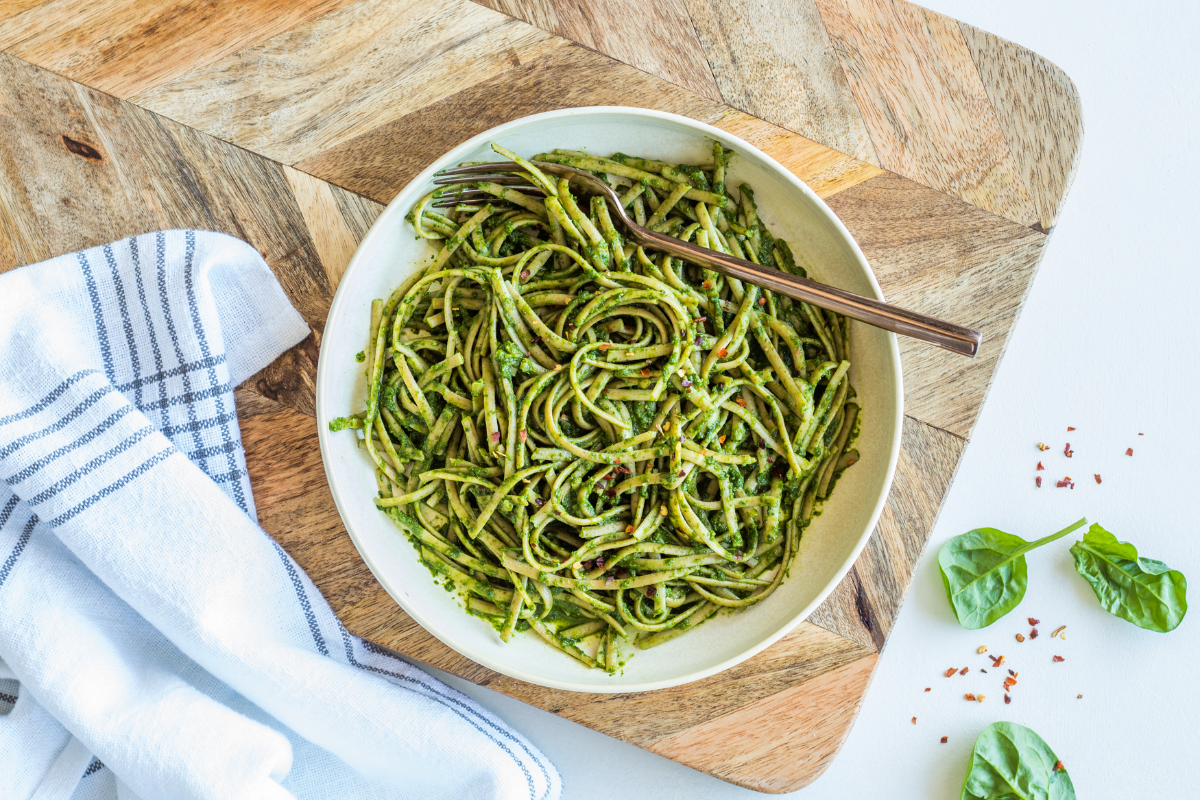
Who Should Try Carb Loading?
Carb loading is great for endurance athletes, like marathon runners, cyclists, and triathletes, who are gearing up for events that last longer than 90 minutes or for athletes with multiple events in one day. However, Melissa explains that any sport that requires high intensity, no matter how long, may require an increased carbohydrate intake to ensure an athlete has adequate fuel stores.
Endurance athletes require a lot of sustained hard exercise efforts, and carb loading helps to saturate their muscles with glycogen, giving them the fuel to keep going. If you’re working with an endurance athlete, carb loading can give them that extra energy boost and edge needed to perform their best.
Common Carb Loading Mistakes
After working with endurance athletes for many years, Melissa has seen her fair share of carb-loading mistakes. She observes that many athletes may be physically prepared for competition but are not necessarily nutritionally prepared.
For example, some athletes won’t practice carb loading in training and then try to overload on carbs the night before rather than gradually increase their intake over several days. This type of over-fueling can set the stage for GI distress, impairing performance.
Another mistake is some athletes simply aren’t meeting their targeted amount of carbs, which can contribute to increased fatigue and poor performance. It’s important to note that carb loading is very difficult to do with whole foods alone. Melissa, an endurance athlete herself, uses liquid carbs like juice and chocolate milk to help meet her carbohydrate needs when carb loading is required for an endurance event.

Melissa emphasizes the importance of practicing fueling in training. For example, marathon nutrition isn't just about what you eat on race day; it also involves what you eat during training.
She notes that "practicing carb loading can help build your tolerance and help avoid GI issues on the day of your event." When athletes practice fueling in training, they can try various products to see what they like and what works best.
Different sports drinks, gels, endurance powders, and multi-transportable carbohydrate blends can work better for some athletes than others due to individual preferences, digestive tolerance, and sport-specific fuelling needs. For example, some athletes might find that sipping sports drinks with electrolytes helps them maintain their energy levels, while others might prefer the quick energy boost from a banana or gels.
Experimenting with these options during training is important to see what works best for an athlete. This way, they can avoid unpleasant surprises like GI distress on the day of the big event and have the optimal fuel for peak performance.
Creating a Carb Loading Plan
The following are key factors to keep in mind when creating a carb-loading plan for endurance athletes.
When to Start Carb Loading
Carb loading with 10 to 12 grams of carbohydrates per kilogram of body weight per day (g/kg/day) should begin 1 to 3 days before a competition. However, when navigating the logistics of carb loading and competition, Melissa explains that some athletes find 10-12 g/kg/day too daunting and may need to consume a more moderate amount of carbs, such as 8 g/kg, over a longer period while tapering from training. Sports dietitians can help athletes create an individualized plan around travel and preparation for an event.
If you are an endurance athlete and think 10-12 g/kg/day is too challenging to consume, it might help to know that Tour de France athletes consume upwards of 18 g/kg/day before and during key stages of the Tour. It’s highly advantageous to practice fuelling strategies during training that mimic competition so you can feel confident in your plan.
Carb Loading Meal Plan: Before the Event
According to Melissa, an athlete should eat 10-12 g/kg/day approximately two days before their event. She recommends lower-fiber carb options like bagels, juices, muffins, white rice, potato, and white pasta, as they decrease the risk of digestive issues during the event.
Melissa notes that non-starchy vegetables are not needed while an athlete is carb-loading, as they can displace carbohydrate intake and contribute to additional gut residue. However, fruit is usually well tolerated as long as it is low-fiber. Examples of low-fiber fruit include bananas, applesauce, and fruit juices.
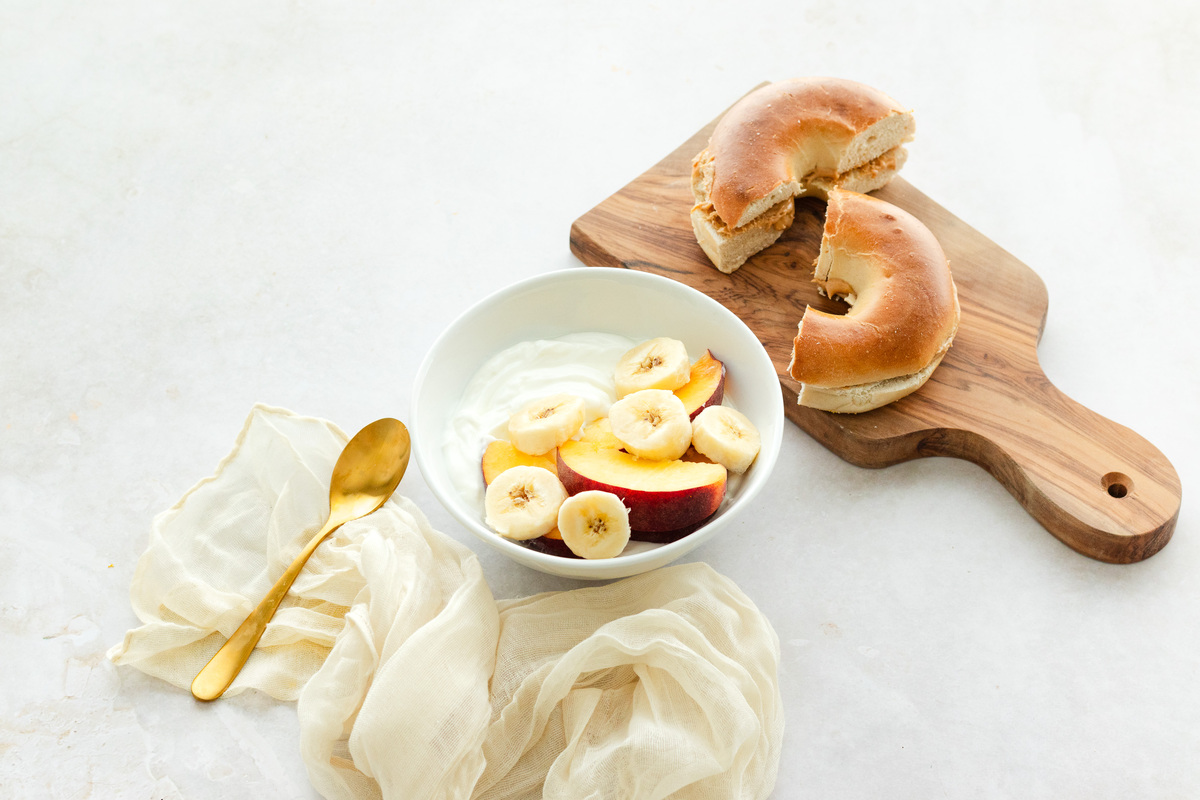
The protein needed for endurance athletes while carb loading will be approximately 1.2 to 1.6 g/kg/day to prevent muscle protein breakdown. Melissa adds that you’ll want to opt for lean protein in your meals to aid with satiety. Lean proteins include skinless white poultry, white fish, low-fat dairy, protein powders, and eggs.
Athletes shouldn’t go to bed too full but often need a nighttime snack. She suggests trying a liquid carbohydrate like chocolate milk to help meet daily carbohydrate targets.
Day of the Event
During the day of the event, Melissa recommends a pre-event meal approximately 1 to 4 hours before the competition. This meal should provide roughly 1 to 4 grams of carbs per kilogram of body weight, for example, 2 g/kg two hours before. Additionally, an athlete should consider having a carbohydrate gel, sports drink, or banana right after warming up to "top off the tank."
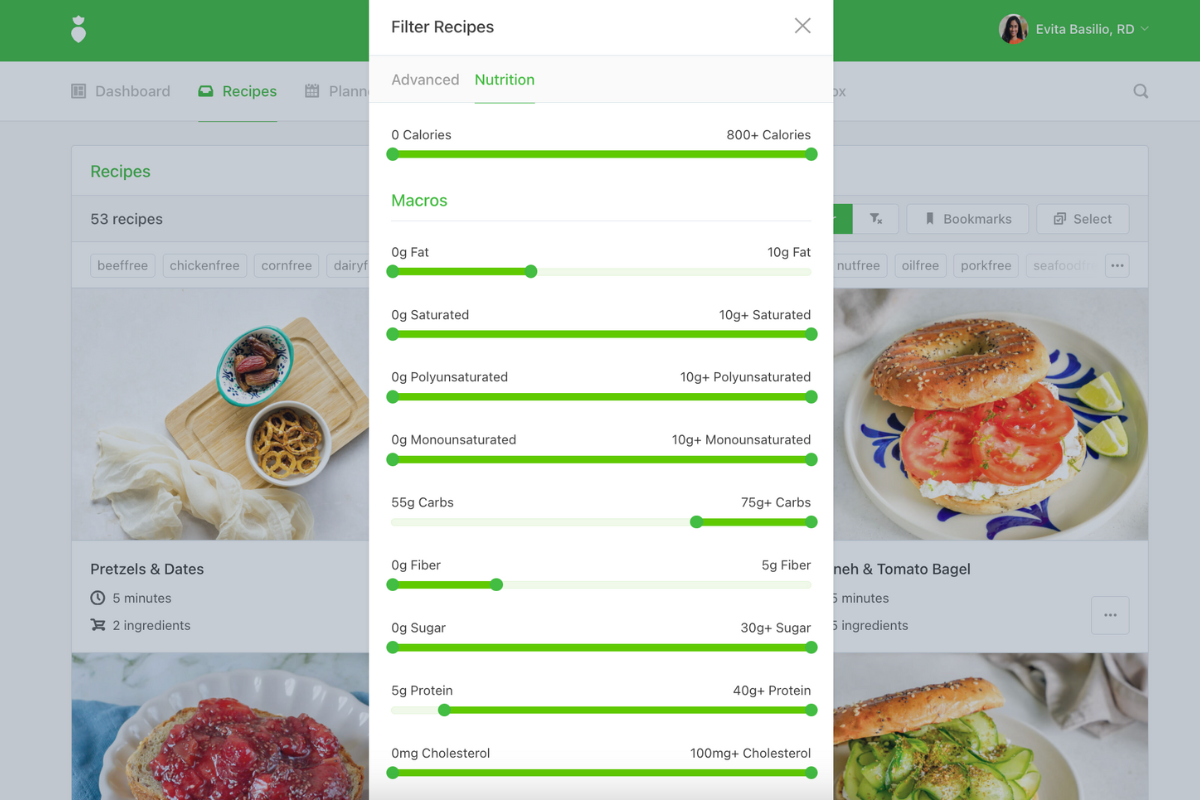
During events lasting one to two hours, an athlete should ideally consume 60 grams of carbohydrates per hour. For events lasting longer than two hours, Melissa advises that an athlete consume 90 grams of carbohydrates per hour to help provide stable blood glucose levels and prevent glycogen depletion.
Post-Event
An athlete will want to optimize recovery after an event. Melissa suggests 1 to 1.5 grams of carbohydrates per kilogram of body weight. For protein, athletes should aim for 0.4 grams of protein per kilogram of body weight during this time.
It is important to replace fluid lost during an event with some electrolytes in the form of electrolyte-enhanced beverages to help maintain hydration levels and restore electrolyte balance in the body. This is also the time for tart cherry juice, chocolate milk, or a recovery smoothie to help replenish fluids and energy stores.
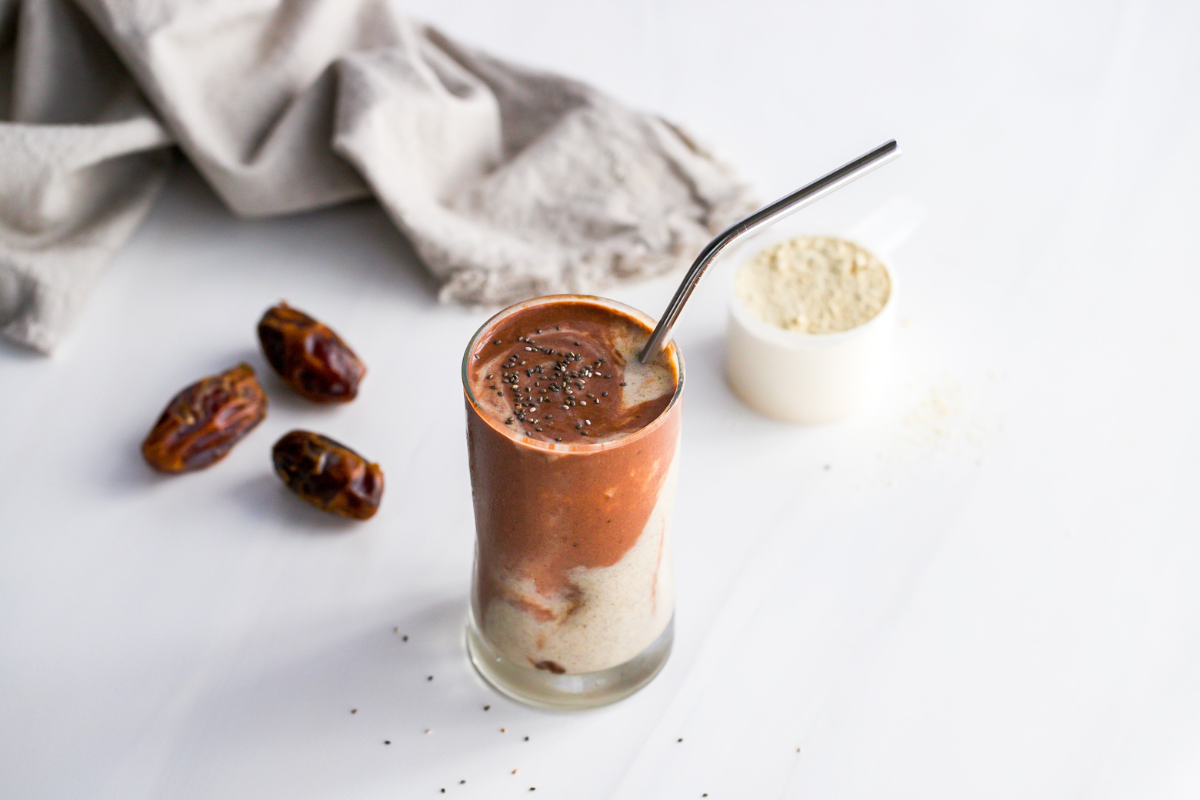
Sample Carb-Loading Meal Plan
The following is a sample carb-loading meal plan for optimizing energy levels and performance:
Day Before the Event
- Breakfast: Bagel with cream cheese or nut butter, scrambled eggs and fruit, or oatmeal with fruit and milk
- Mid-morning Snack: Low-fat Greek yogurt with maple syrup and fruit
- Lunch: Pasta with tomato sauce or pesto with a lean protein like chicken or salmon
- Afternoon Snack: Fruit smoothie or dates with pretzels
- Dinner: White rice with a lean protein source
- Evening Snack: Low-fat chocolate milk with a banana
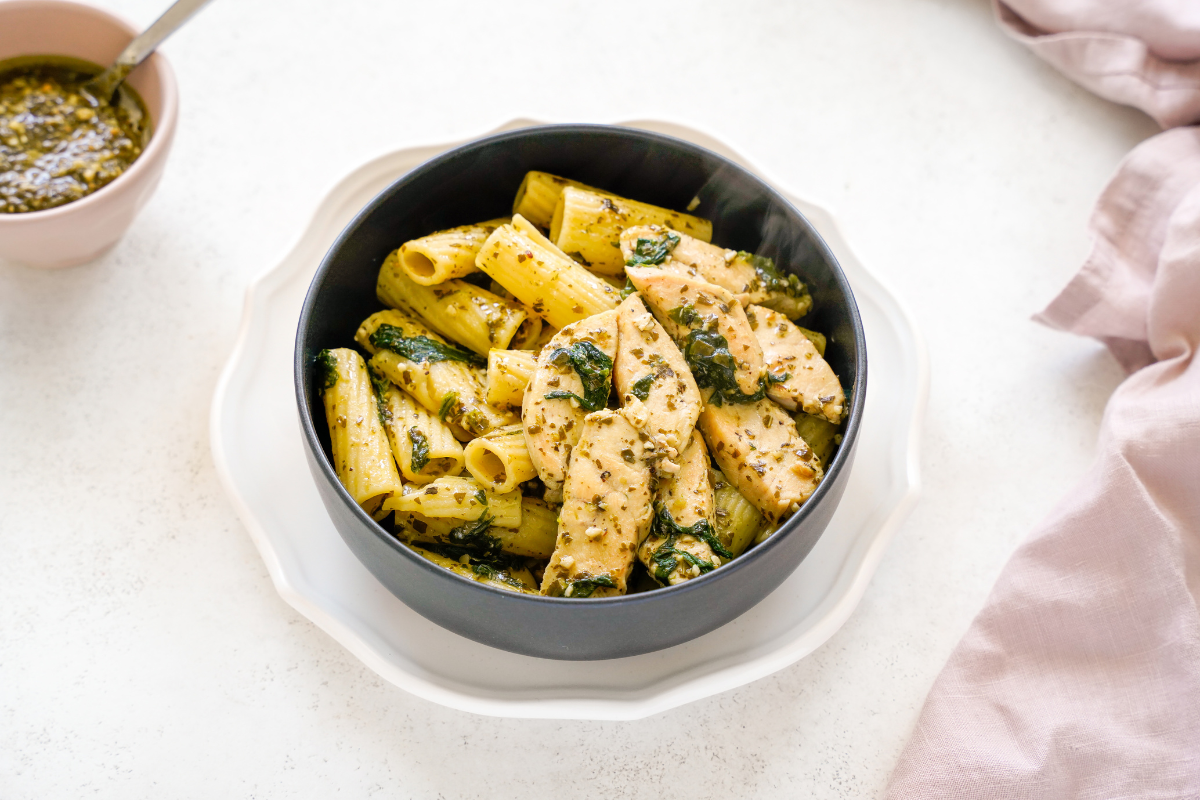
How to use That Clean Life to Create a Carb-Loading Plan
Creating a carb-loading plan using That Clean Life couldn’t be easier.
That Clean Life provides two easy-to-use templates: Carb Loading Program and Plant-Based Carb Loading Program to support endurance athletes on their journey to success.
Whether an athlete follows an omnivore diet or prefers plant-based options, our templates provide many delicious carbohydrate-rich recipes to support optimal energy levels and endurance during intense training and competition phases.
To modify the templates or create your own plans, That Clean Life's recipe filters help you find personalized options based on your client's specific carb, fiber, protein, and fat needs.
Creating a carb-loading plan tailored specifically for endurance athletes can maximize performance and help them crush their long-distance goals. With insights from Melissa Hardy, we've learned that a well thought out nutrition plan can make all the difference in optimizing glycogen stores, boosting endurance capacity, and ultimately crossing that finish line with flying colors.
Get started today with our templates, and if you are not yet a member of That Clean Life, watch our demo here to see how it works.

